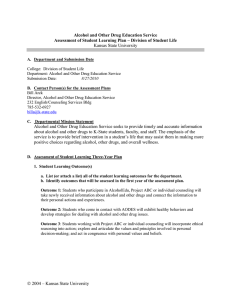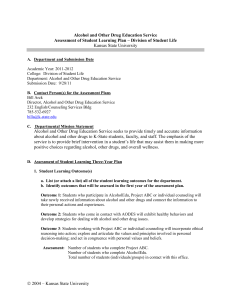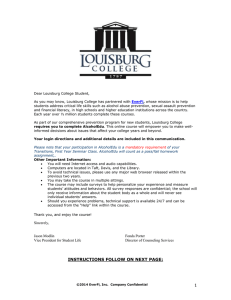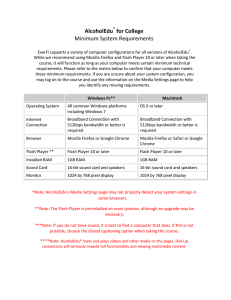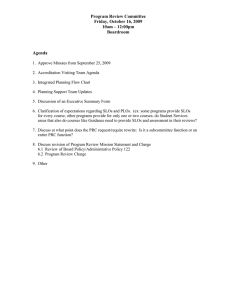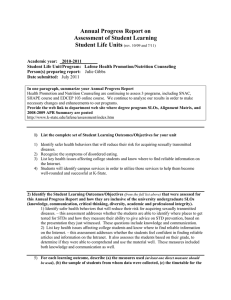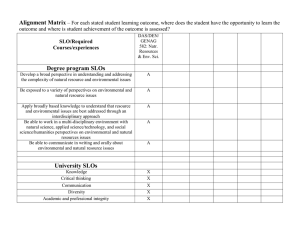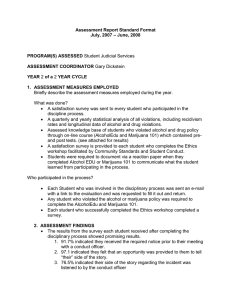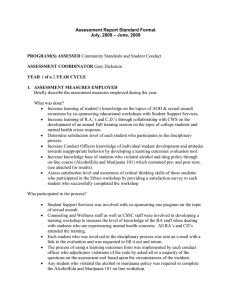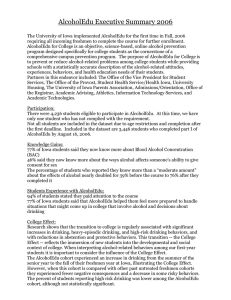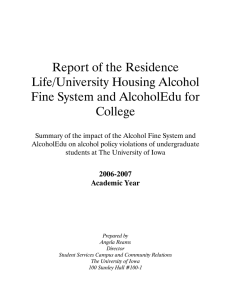Annual Progress Report on Assessment of Student Learning Student Life Units
advertisement
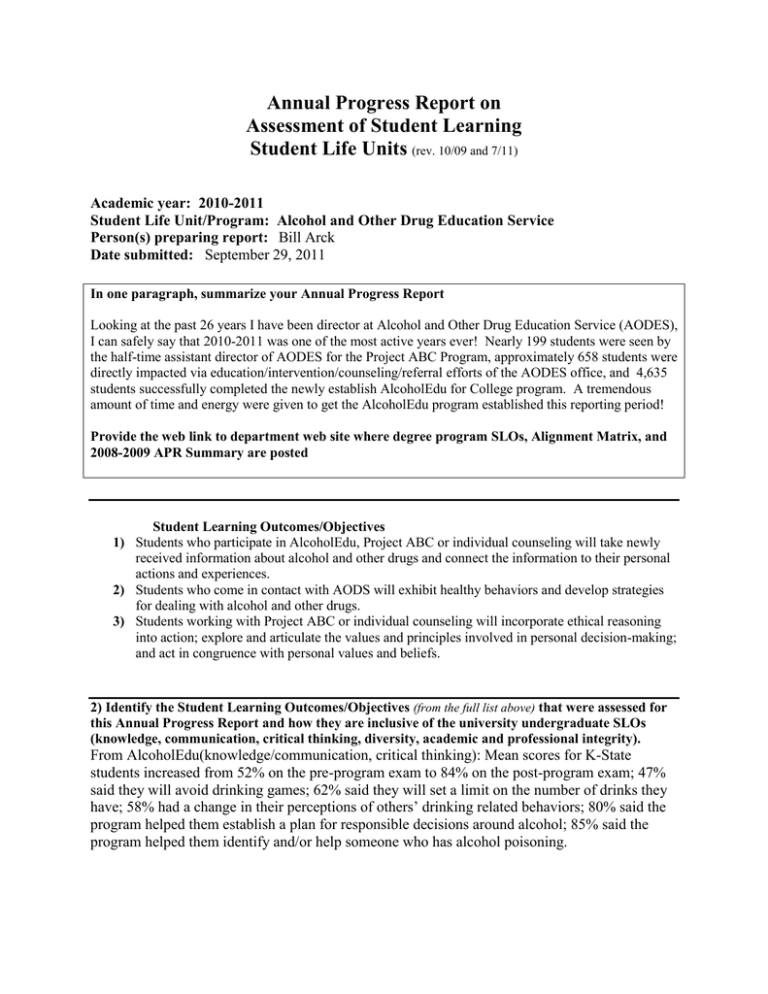
Annual Progress Report on Assessment of Student Learning Student Life Units (rev. 10/09 and 7/11) Academic year: 2010-2011 Student Life Unit/Program: Alcohol and Other Drug Education Service Person(s) preparing report: Bill Arck Date submitted: September 29, 2011 In one paragraph, summarize your Annual Progress Report Looking at the past 26 years I have been director at Alcohol and Other Drug Education Service (AODES), I can safely say that 2010-2011 was one of the most active years ever! Nearly 199 students were seen by the half-time assistant director of AODES for the Project ABC Program, approximately 658 students were directly impacted via education/intervention/counseling/referral efforts of the AODES office, and 4,635 students successfully completed the newly establish AlcoholEdu for College program. A tremendous amount of time and energy were given to get the AlcoholEdu program established this reporting period! Provide the web link to department web site where degree program SLOs, Alignment Matrix, and 2008-2009 APR Summary are posted Student Learning Outcomes/Objectives 1) Students who participate in AlcoholEdu, Project ABC or individual counseling will take newly received information about alcohol and other drugs and connect the information to their personal actions and experiences. 2) Students who come in contact with AODS will exhibit healthy behaviors and develop strategies for dealing with alcohol and other drugs. 3) Students working with Project ABC or individual counseling will incorporate ethical reasoning into action; explore and articulate the values and principles involved in personal decision-making; and act in congruence with personal values and beliefs. 2) Identify the Student Learning Outcomes/Objectives (from the full list above) that were assessed for this Annual Progress Report and how they are inclusive of the university undergraduate SLOs (knowledge, communication, critical thinking, diversity, academic and professional integrity). From AlcoholEdu(knowledge/communication, critical thinking): Mean scores for K-State students increased from 52% on the pre-program exam to 84% on the post-program exam; 47% said they will avoid drinking games; 62% said they will set a limit on the number of drinks they have; 58% had a change in their perceptions of others’ drinking related behaviors; 80% said the program helped them establish a plan for responsible decisions around alcohol; 85% said the program helped them identify and/or help someone who has alcohol poisoning. 3) For each learning outcome, describe (a) the measures used (at least one direct measure should be used), (b) the sample of students from whom data were collected, (c) the timetable for the collection, and (d) the forum in which the measures were administered. (Examples of direct measures can be accessed at http://www.k-state.edu/assessment/plans/measures/direct.htm). The measures used by the AlcoholEdu program were self-report responses to questions/situations in the program. Students sampled were all newly enroll, degree seeking students on the Manhattan and Salina campuses under the age of 22 on the first day of classes, and most students completed the program before they arrived on campus. The AlcoholEdu program is an on-line, interactive computer program which incorporates proven prevention strategies and science-based findings. 4) Describe the results of the assessment. (What do they tell you about student learning? What did you learn about strengths and weaknesses of your unit?) If specific results are not available, describe the progress that has been made on the initiatives included in the approved assessment plan. The AlcoholEdu program shows that K-State students seem to be engaged and learn from a format that features a story narrative and activities that reflect the way today’s students communicate, and that an easily accessible interactive web-based program provides a personalized educational program. 5) Describe the actions and/or revisions that were implemented in response to the previous year’s assessment results and the effects on student learning observed on this year’s SLOs. There were no changes to the AlcoholEdu program this reporting period as it was the first year of implementation. 6) Describe the process by which staff reviewed the results of this year’s SLOs and the actions and/or revisions that are planned in response to the assessment results. (Include changes that may be made to unit SLOs or to the general assessment strategy) I am the only full-time member of the AODES and therefore I did the review of this year’s SLO’s; no current revisions are planned. 7) If needed, revise the department’s Assessment Plan for the next academic year. Attach your assessment plan to this report.
